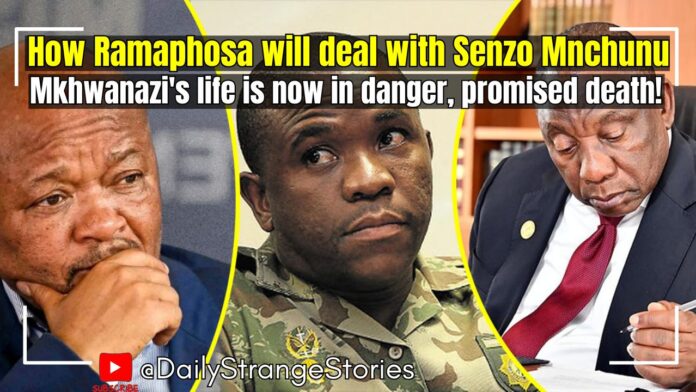As South Africa braces for President Cyril Ramaphosa's address tonight, the nation remains gripped by deepening concerns regarding allegations of political interference and corruption within the South African Police Service (SAPS). The integrity of law enforcement and governance hangs in the balance as the President prepares to address the serious accusations that have recently come to light.
President Ramaphosa, who was attending the Brics Summit in Brazil when the allegations surfaced, has pledged to act decisively upon his return to South Africa. The nation now awaits his response, hoping for a clear plan to address the crisis and restore public trust in the SAPS.
Experts suggest that the current situation reflects long-standing challenges within the SAPS and the broader justice system. Dr Simon Howell, from the University of Cape Town’s Centre of Criminology, explained that while such public accusations at the national level are uncommon, "within the organisation, there may be lots of people talking about things." He stressed the importance of a thorough inquiry to establish the truth. "Credibility depends on who’s making the statement, the reasons, and the evidence they can show. Considering the allegations made, there will need to be some type of inquiry."
Howell also highlighted the damaging effects of political interference on crime investigation. "There have been recorded instances of political interference having a significant impact," he noted, recalling the controversial firing of Robert McBride from the Independent Police Investigative Directorate (IPID) after he pursued allegations against senior officers.
Regarding oversight bodies, Howell observed that IPID has become "often toothless," lacking the necessary power to conduct meaningful investigations. While he pointed to recent successes by the Ministerial Police Agency (MPA), he insisted that comprehensive reform is critical if public trust is to be rebuilt.
The backlog of investigations, Howell added, not only damages public confidence but also corrodes police morale and discipline. "Imagine working in an organisation where bosses are constantly under investigation or arresting one another," he said. "This has a severe effect on policing. Clear guidance and leadership are essential."
Political analyst Professor Sipho Seepe described the allegations as "dire," warning that they pose a fundamental challenge to the African National Congress (ANC) and the entire criminal justice system. He condemned the ANC’s handling of the Phala Phala scandal, particularly the classification of the report as top secret by Minister Mchunu, who now faces accusations from Mkhwanazi of interference in policing operations.
Legal expert Dr Lennit Max, a former police advisor, warned of serious consequences if Mchunu is found to have misled Parliament or interfered in police matters. "The minister can be reported to Parliament’s Ethics Committee for misleading the House, and a criminal case for perjury may be opened. If convicted, he could face jail, a suspended sentence, or a fine."
He claimed that he had phoned Mkhwanazi days before the media briefing to discuss fears among officers about arrests under Section J50. Mogotsi rejected claims that he arranged meetings with businessman Vusimuzi “Cat” Matlala on the minister’s behalf or benefited from SAPS tenders, saying, "Ministers don’t run tenders. I’ve never done that, consciously or unconsciously."
Mogotsi also denied any familial or professional ties to the minister’s spokesperson and expressed concern for his safety after receiving threats.
Adding another layer to the unfolding saga, it has been revealed that Mkhwanazi first contacted Mogotsi via WhatsApp in September 2024, with Mogotsi warning of attempts to discredit the police commissioner through legal manipulation. The messages included sensitive police documents and raised serious questions about the extent to which outsiders interfere in operational policing.
As President Ramaphosa prepares to address the nation, the weight of these allegations hangs heavy in the air. The public demands answers, accountability, and a clear path towards restoring integrity within the SAPS and the broader framework of South African governance. The President's response will undoubtedly shape the future of law enforcement and public trust in the country.

Follow Us on Twitter











